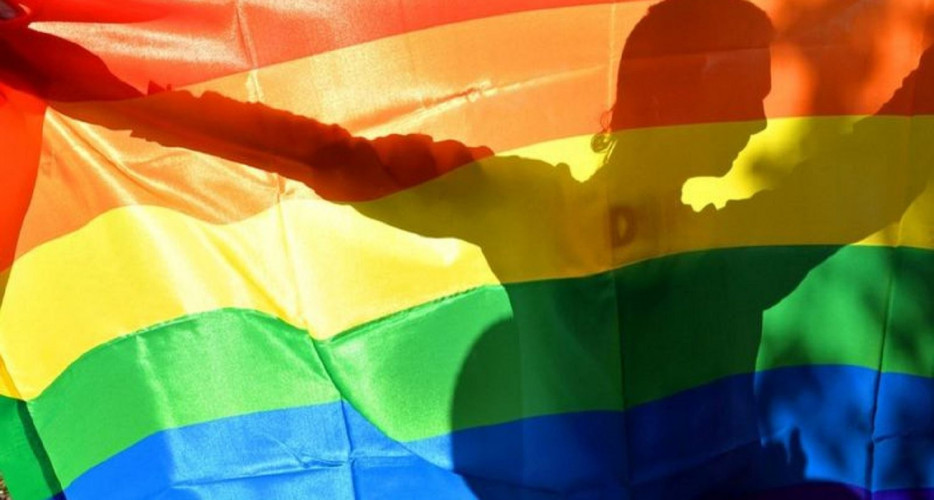
PEREGRAF- Duhok
Zhiyar* from the Kurdistan Region’s Duhok province, like many of her peers can’t go everywhere she wants due to forced restrictions by her family for wanting to be her preferred gender among a society that is unfamiliar and disdainful towards non-binary people.
"I am aware that some people have been staying at home for so long in fear of the community's bad words, and that they have mental health issues and have killed themselves," Zhiyar told Peregraf.
Zhiyar and others from the LGBTQ+ community are at increased risk, especially in Duhok province, Peregraf has learnt.
"I’m a half man and half woman, but the woman in me dominates me. My voice, which sounds like men’s, often causes problems for me. I can't go out like a normal person, because of what people say. My family often won’t let me, or they tell me not to mix up with men or with women," she said.
In Iraq and the Kurdistan Region, there is no law in favor or against the LGBTQ+ community, and although there is no law against gender reassignment, no doctor performs the surgery unless one is intersex.
"I tried to find a solution, which is by changing my gender to either a man or a woman, but there is no such surgery in the Kurdistan Region, and my family is not financially able to allocate money for me and do it elsewhere," said Zhiyar.
Faisal Khalaf, a skin and cosmetics doctor in Duhok said that although he doesn’t do sex reassignment, "young people have come to me to change gender and I have rejected it."
"This is especially common among young people between the ages of 15 to 20," he explained, adding that such surgeries are now on the rise, including changing the face into what is culturally considered feminine or masculine.
"As far as I know, gender reassignment is performed in Duhok for people who have an extragenital, with the family’s permission," Khalaf said.
The situation was somewhat more difficult for the queer community in Duhok after 23-year-old Doski Azad was killed by his family at the end of January for being a trans woman.
Azad's brother, who had returned from abroad but fled the country following the homicide, was accused of the murder by Duhok police.
"The accused has fled the country and our efforts continue to arrest him through Interpol police," Hemin Suleiman, Duhok police spokesperson told Peregraf.
"The accused has been issued an arrest warrant under Article 406 of the Iraqi Penal Code, which talks about intentional killing for which the punishment is life imprisonment or execution," he added, noting that investigation results are not yet revealed.
The incident in Duhok was widely condemned, including by the UN Assistance Mission for Iraq (UNAMI), the American, French and German consulates in the Kurdistan Region, who also demanded the perpetrator to be punished and called for an end to gender-based hatred and discrimination.
However, the Kurdistan Regional Government's (KRG) security forces have not been able to create a safe environment for the LGBTQ+ community, to a point some cannot go out freely and some cannot even leave the house.
Last year in April, Sulaimaniyah’s security forces were widely criticized by the foreign representatives after arresting a number of young people from the queer community.
"I'm in a good situation compared to other people. I'm aware that those like me, half of whom are women and half men, are not allowed to leave the house or behave the way they want," Zhiyar noted.
Iraq’s constitution says no law or decision made in the country should oppose Islamic laws and principles, so same-sex marriage is not permitted by law, except if they do sex reassignment, in which case they will face problems changing their documentations.
"There is no legal text in the Kurdistan Region for those who try to change their sex, but according to the instructions of the Iraqi ministry of health, only those with both male and female reproductive organs are allowed to choose a gender and have surgery for that purpose, after they pass the age of 18," Nawzad Dosky, a lawyer in Duhok, told Peregraf.
Dosky explained that any request for sex change in court would be rejected, so "Now in Kurdistan, those who change their gender cannot legally change their identity," he said.
Mullah Ahmed Rekani, a religious teacher in Duhok, told Peregraf that changing one’s gender is a "sin" but killing is not a part of its punishment.
"In terms of Islamic law, changing gender is a big sin but there is no killing. Intersex people are allowed to choose and act according to the gender they are the closest to," Mullah Rekani said.
He reiterated that changes are only allowed for intersex people and that "religion does not accept homosexual people in any way."
*Name has been changed to protect identities